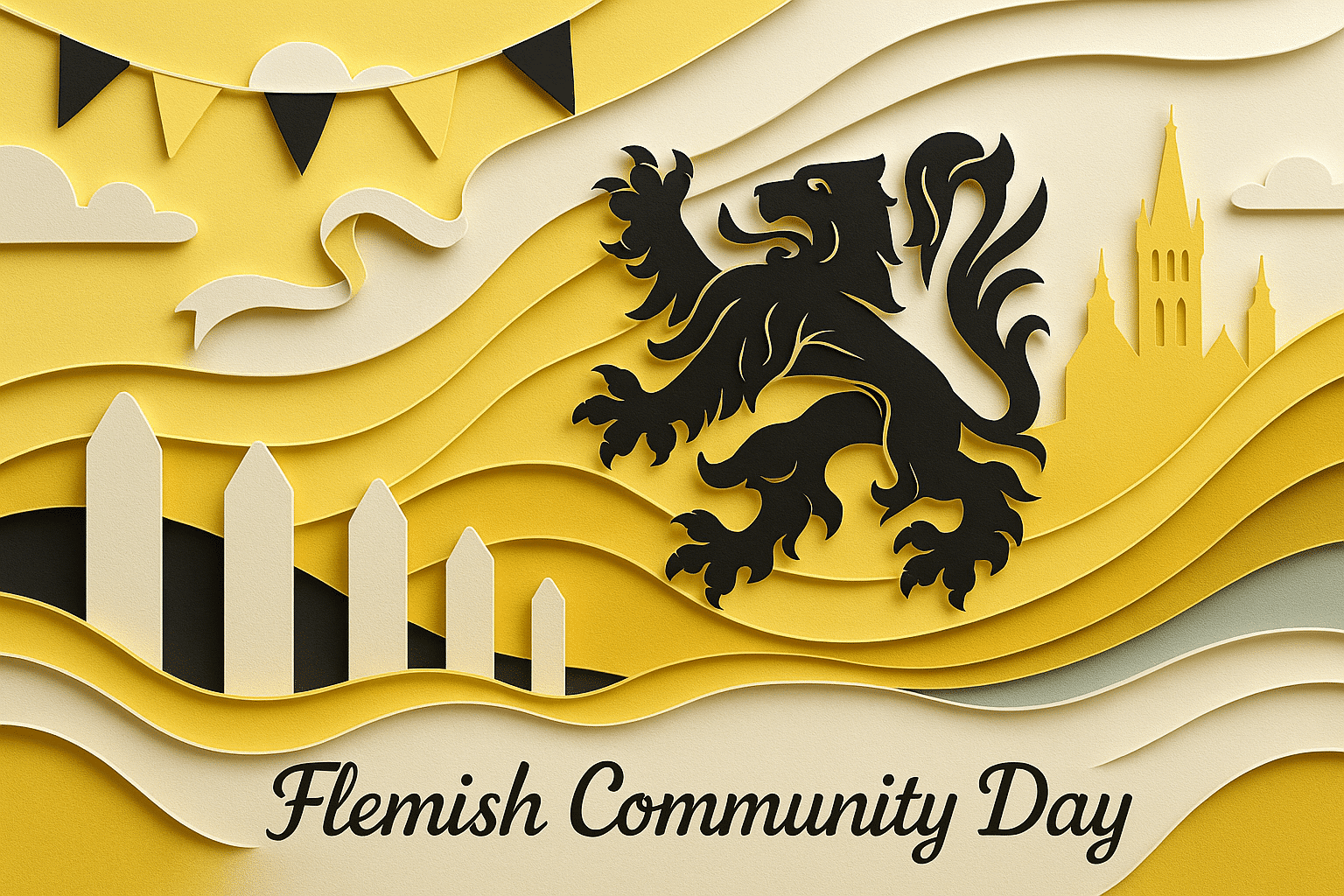What is the Day of the Flemish Community?
The Day of the Flemish Community is observed every year on July 11 in Belgium. It marks the anniversary of the Battle of the Golden Spurs, a historic event that took place in 1302. This day celebrates Flemish identity, language and culture, especially in the Flemish-speaking region of Belgium. It is a public holiday in Flanders and is marked by official ceremonies, public events and cultural activities.
The day offers a moment for people to reflect on regional pride and history. It is also a celebration of modern Flemish contributions to art, music and civic life. By highlighting shared traditions and values, the day reinforces a sense of community and belonging. Schools, cities and families use the occasion to explore Flemish history and express pride in their heritage.
History and Origin
The Battle of the Golden Spurs took place on July 11, 1302, near the city of Kortrijk. Flemish militias, composed mostly of townspeople and craftsmen, faced off against a much larger French army. Against the odds, the Flemish won the battle. It became a symbol of resistance, courage and the defence of local rights. The golden spurs taken from fallen French knights gave the battle its name.
Centuries later, this event became a rallying point for Flemish pride. In 1973, the Flemish Parliament officially designated July 11 as the Day of the Flemish Community. Since then, it has been a legal holiday in Flanders. Each year, it is used not only to remember the battle but also to celebrate Flemish achievements in modern times. It connects historical memory with cultural expression.
Who participates in the Day of the Flemish Community?
- Government officials: deliver speeches and attend remembrance ceremonies
- Cultural organisations: organise concerts, readings and exhibitions
- Schools and universities: offer lessons about Flemish history and identity
- Local communities: host neighbourhood festivals and open-air performances
- Citizens: take part in activities that highlight regional pride
Slogans and Themes
The Day of the Flemish Community uses themes such as pride, freedom and cultural identity. Common slogans include “Vlaanderen feest” and “Trots op Vlaanderen.” These messages focus on unity, shared values and the connection between past and present. Each year may highlight a different aspect of Flemish life, but the core idea remains the same: to celebrate who the Flemish are and where they come from.
Colors, Symbols and Patterns
Colors
- Yellow: reflects the background of the Flemish flag
- Black: symbolises strength, as seen in the Flemish lion
- Red: sometimes used to represent the passion of the people
Symbols
- Flemish lion: stands for strength and courage
- Golden spurs: recall the historic victory of 1302
- Flemish flag: waved at public events and displayed on buildings
Patterns
- Heraldic shields: evoke medieval traditions and civic pride
- Tapestry-style art: used in cultural events and parades
- Embroidered motifs: reflect traditional Flemish folk design
Most used hashtags
- #vlaanderenfeest
- #flemishcommunityday
- #guldensporenslag
- #trotsopvlaanderen
- #11juli
How do you celebrate the Day of the Flemish Community?
- Join public events: attend concerts, theatre and poetry readings
- Visit a museum: explore exhibits on Flemish art and history
- Watch historical documentaries: learn more about 1302 and its legacy
- Fly the Flemish flag: show support for your community
- Share on social media: post photos or messages using common hashtags
Why is the Day of the Flemish Community important?
The Day of the Flemish Community is important because it keeps a key moment in Flemish history alive. It reminds people of the battle where ordinary citizens stood up against a larger force and won. That story continues to inspire pride, resilience and a strong connection to local identity. The day gives meaning to symbols like the Flemish flag and lion, showing that they represent not just heritage but shared values.
It also gives people a reason to come together in celebration. Music, food and art connect people across generations. Schools use the occasion to teach history in ways that are local and personal. The day is not just about the past but also about what Flanders is today. It helps people look back and look forward at the same time.
Features
July 11: Day of the Flemish Community (Belgium)
Why do you keep falling for the same type?
Read the article Lovemaps: the hidden blueprint of our love.

